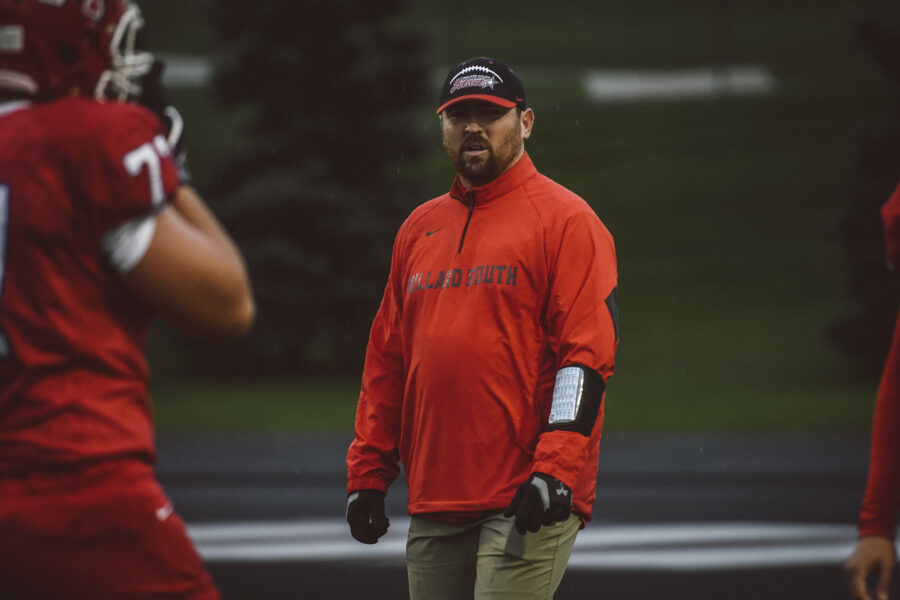When a Head Football Coach Should Assume Assistant Duties

There are times when it’s best for a head coach to assume some duties normally allotted to an assistant coach. Chris Fisher explains the process and options.
As a head coach puts together his staff, he hires assistants who he trusts to carry out his vision for the program. The head coach is the overseer of the program, the main person who ensures everyone carries out their assignments and coaches the players properly. Occasionally though, a head coach must own the responsibilities of an assistant coach for a myriad of reasons.
It’s not uncommon for a coach to assume duties as the offensive or defensive coordinator, as that was likely his previous job. Head coaches are comfortable breaking down the opponent and calling the game due to years of experience. This also allows the coach to be directly involved in the development of their team and program. I’ve heard head coaches say they feel separated from the team when they walk the practice field, surveying each position rather than coaching a unit. When the head coach coordinates a unit, he can ensure his vision is taught and explained.
A head coach might also want to groom a young coordinator. He can show someone who may be coordinating for the first time the ropes while allowing him room to grow into the responsibility. Providing a model to an assistant will help him see the head coach’s vision.
Sometimes a head coach cannot completely fill all of the assistant positions, and has to take on coaching a position. Staff shortages stress the entire coaching staff as each member picks up extra duties and coaches more players than usual. The head coach can relieve some of this stress by coaching a position. This may require some reshuffling of the staff in order to make sure the players are receiving the best possible instruction.
Head coaches may choose to coach a position even with a complete staff. I played for a head coach who was also our primary offensive line coach. His expertise of the system and positions allowed him to coach us exactly the way we needed to execute each play.
In some seasons, there are worst-case scenarios which require the head coach to fill in for an assistant and keep the team going, such as a severe illness or disease diagnosis and treatment. An assistant can also vacate his position by choice, or a coach must remove an assistant because his actions are detrimental to the team. These are delicate situations that must be handled appropriately in order to keep the players from being negatively impacted.
The void could be filled by reorganizing the staff and combining positions. The objective is to spread the duties among the rest of the coaches without making the situation unbearable. If the head coach is able to assume some of these duties, he can alleviate some of the stress of what can already be a stressful situation.
Whether a coach delegates to his assistants, or takes on the duties himself, the most important thing to keep in mind is how it will impact the program and the players. No matter the decision, the head coach must be sure it will have a positive effect and help the program be successful.
